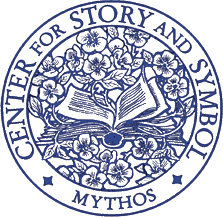
Register Articles Joseph Campbell Search

This seminar focuses on the importance of authenticity in maintaining professional ethics. The genuine presence of the psychotherapist is a key instrument in the healing relationship. The course looks at the task of coming to terms with our own imperfections. If we are to find unconditional positive regard for the client, it helps if we find some for ourselves.
We will discuss the 2023 film Barbie to illustrate the choice of shedding defenses to become more real. Embracing our humanity, and mortality, takes a unique courage. Like Barbie, we might be tempted to hold onto the superficial comfort of old defenses. Avoiding accepting personal vulnerability can lead to toxic positivity, a strained satisfaction that denies any lurking distress. Fortunately, our commitment to helping clients is motivation to do difficult inner work. Empathy requires a foundation of self-acceptance. The film Barbie is a surprisingly good illustration of the long-term journey of claiming our true selves.
Clinicians live in an ongoing tension between honest openness and the temptation to project an impressive mastery. Like Barbie, we sometimes expect ourselves to be perfect. Such an unreasonable goal can lead to ethical lapses. It can also cause problems in our self-care. For example, therapists are often poor at seeking support in times of stress.
There is no homework. Screening the film in advance is not required. Sufficient summaries will be provided so all attendees will be able to participate fully in the discussion. Still, there will be spoilers, so watch the movie if you were planning to see it.
The day will include a symbolic analysis of Barbie as an initiatory adventure. The training includes detecting psychological themes in cinema - and how to use examples from movies in resolving ethical questions.
Explain psychological foundations of integrity.
Describe how reflective practices support reliability.
Detect transformations in films and identity formation.
Identify how plot dynamics reveal developmental tasks.
Apply dream analysis methods to draw insights from movies.
Demonstrate effective models of applied ethics.
The material is presented at an introductory level, requiring no background in mythic studies, narrative theory, or Jungian psychology.
The following CE credits are available:
Psychology, LMFT, LCSW, LPCC, Ed Psych, NBCC : 6 CE hours
Nursing : 7 hours
Most teachers must get credits approved by their school administration. Center courses meet the requirements in most states. Contact us if you need more information about receiving credit in your state.
Select a seminar from the Current Course Offerings
Register online or call the Center at 805-687-7171

Jonathan Young, PhD is a psychologist (PSY10231) and storyteller. His books and articles focus on personal mythology. Dr. Young assisted mythologist Joseph Campbell at seminars and was founding curator of the Joseph Campbell Archives and Library. He is featured in several documentary series on the History Channel. Dr Young, founding faculty at the Pacifica Graduate Institute, is now minister at the Live Oak Unitarian Universalist Congregation of Goleta, a suburb of Santa Barbara, CA.
Anne Bach, MS, MFT 38891 is a specialist in uses of writing in psychotherapy. She gives presentations on creativity as inner work at major conferences, and lectures widely on psychological dimensions of expressive writing. She also appears in memoir drama performances for various theater groups, including the Marsh Stage in Berkeley. Her clinical background includes poetry therapy with seriously mentally ill patients.
Dr. Young also gives frequent media interviews, public talks, workshops, and in-service trainings throughout the U.S. and internationally.

Zoom link goes live at 9:30 a.m., California time - Seminar 10 a.m. to 5 p.m.
- Cinema as window to the unconscious
- Learning from characaters' moral quandaries
- Please return on time
- Using films like dreams - as mirrors of inner conflicts
- sign out by completing the evaluation
This seminar is taught at the introductory level and requires no advance preparation. However, participants are provided with a recommended reading list as part of their class materials.
Bassil-Morozow, Helena and Luke Hockley (2016) Jungian Film Studies (Jung: The Essential Guides). London, Routledge
Beebe, John (1992) Integrity in Depth. College Station, TX: Texas A&M University Press
Campbell, Joseph (2013) Goddesses: Mysteries of the Feminine Divine (Safron Elsabeth Rossi, Editor) . Novato, CA: New World Library
Guggenbuhl-Craig, Adolf (2000)Power in the Helping Professions. Putnam, CT: Spring Publications
Hauke, Christopher & Ian Alister (2001) Jung & Film: Post Jungian Takes on the Moving Image. New York: Brunner/MazelHesley, John W. and Hesley, Jan G. (1998) Rent Two Films and Let's Talk in the Morning: Using Popular Movies in Psychotherapy. New York: John Wiley & Sons
Hollis, James (2020) Living Between Worlds: Finding Personal Resilience in Changing Times. Louisville CO: Sounds True
Hollis, James (2008) Why Good People Do Bad Things: Understanding Our Darker Selves . New York: Avery
Hollis, James (1996) Swamplands of the Soul: New Life in Dismal Places. Toronto: Inner City Books
Le Grice, Keiron. (2013) The Rebirth of the Hero: Mythology as a Guide to Spiritual Transformation. London: Muswell Hill Press
Vogler, Christopher (2020) The Writer's Journey: Mythic Structure for Writers. 25th Anniversary Ed. Studio City, CA: Michael Wiese Productions
Young, Jonathan (1996) Saga - Best New Writings on Mythology Vol. 1. Ashland, OR: White Cloud Press
Young, Jonathan (2000) Saga - Best New Writings on Mythology Vol. 2. Ashland, OR: White Cloud Press
